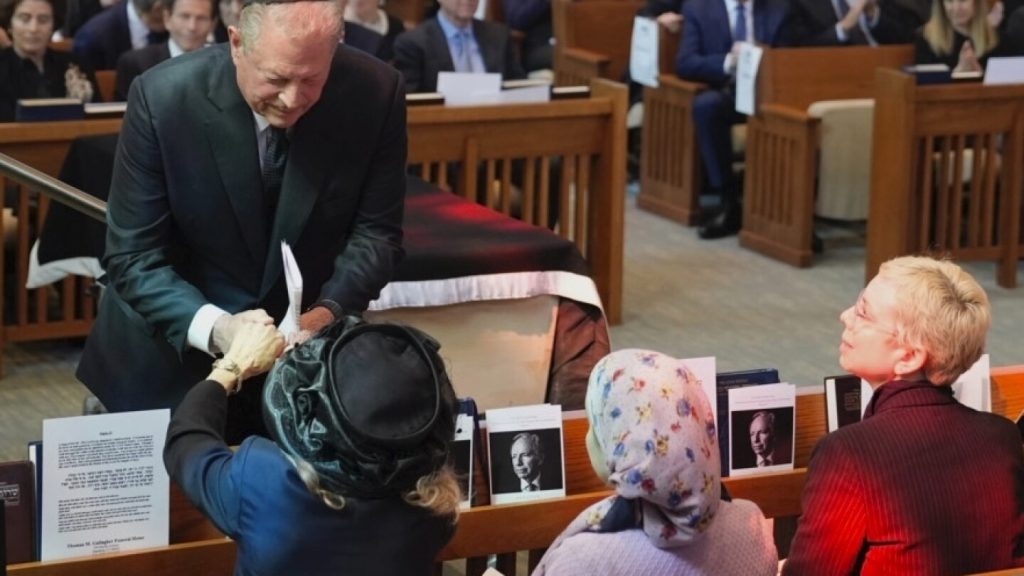Former Vice President Al Gore and other political dignitaries gathered for the funeral service of former Senator Joe Lieberman in Stamford, Connecticut. Lieberman was remembered as a “mensch” who bridged political divides and stood by his convictions. His character was praised for prioritizing friendship over anger and seeking reconciliation as a form of grace, providing lessons on healing the nation’s current divides. Lieberman’s impact was felt not only in his political achievements but also in his personal life, especially his marriage to Hadassah and their children and grandchildren.
Connecticut Democrats, including Sens. Richard Blumenthal and Chris Murphy, and Gov. Ned Lamont reflected on Lieberman’s legacy. Lamont, who once ran against Lieberman, described how Lieberman did not fit into traditional party boxes and went his own way, winning as an independent after a defeat in the Democratic primary. Lieberman was lauded for his calming presence and ability to bridge partisan divides amid growing political hostility. Blumenthal highlighted Lieberman’s accomplishments, including his role in establishing the Department of Homeland Security, advocating for civil rights, and supporting reproductive freedom and LGBTQ rights.
Lieberman’s observance of the Jewish Sabbath played a significant role in his life and faith. He was remembered for his dedication to his beliefs, even walking 5 miles to honor the Sabbath prohibition on riding in a motor vehicle. His daughter, Hana Lowenstein, shared her prayers for more time with her father and the realization of life’s uncertainties and God’s plans. Despite facing hatred and animosity at times, Lieberman’s family emphasized his call for unity and respect among fellow Americans. His son, Matthew Lieberman, urged for a focus on shared humanity in the face of disagreements.
Lieberman’s political journey reflected his independent streak and willingness to cross party lines. Despite being Gore’s running mate in the contentious 2000 election and almost becoming McCain’s vice presidential candidate in 2008, Lieberman faced opposition within his own party due to his progressive stances on social issues and hawkish views on defense and security matters. President Joe Biden hailed Lieberman as principled and steadfast, emphasizing his commitment to serving a greater purpose and repairing societal wounds. Lieberman’s impact was far-reaching, with his involvement in centrist political movements like No Labels.
Lieberman’s pivotal role in the 2000 election, where he came close to becoming the first Jewish vice president, showcased his influence on American politics. His dedication to bipartisanship and collaboration continued in his later endeavors, including leading the No Labels movement. While some Democrats expressed concerns about the movement’s impact on the upcoming presidential election, Lieberman and his wife, Hadassah, left a lasting legacy through their four children. Despite the challenges and controversies he faced during his political career, Joe Lieberman was remembered for his commitment to his beliefs, his dedication to his faith, and his efforts to bring people together for the greater good.















